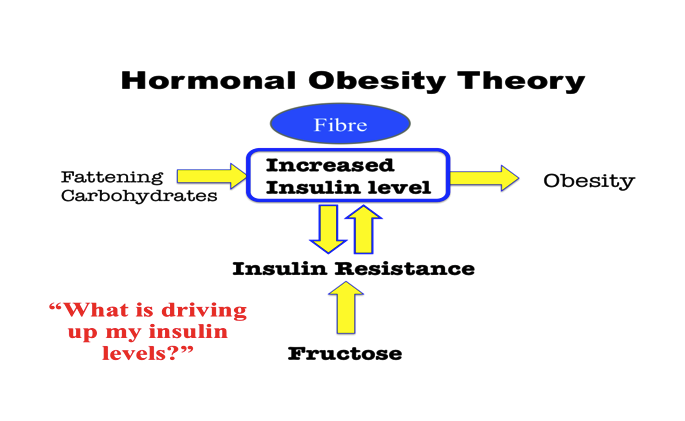Johann Windt, Liam West (@Liam_West) and Ania Tarazi
The low carbohydrate diet discussion continues: does the LCHF diet fall better under well-researched intervention or ill-advised fad? Today the focus was on various health parameters, including metabolic syndrome, type 2 diabetes, and metabolic syndrome. Check out the Day 2 Storify here!
Dr Eric Westman – #LCHF treatment of obesity & metabolic syndrome
Launching the morning, Dr Westman described the clinical use of #LCHF diets for the treatment and prevention of obesity as well as metabolic syndrome. He presented a number of trials that demonstrated the improved efficacy of #LCHF diets in comparison to low GI diets, Mediterranean diets, and low fat diets. #KeyTheme – a conscious reduction in carbohydrate content would subsequently limit caloric intake (without deliberate restriction), and the various components of metabolic syndrome. Want some extra reading? Try these papers: 1, 2 & 3.
Dr Jay Wortman – The #LCHF diet for obesity, metabolic syndrome & T2DM
Dr Jay Wortman from Canada outlined the significant decline in the health of the aboringinal people following the introduction of western dietary foods, including processed and refined foods. Continuing the trend of many other speakers, Dr Wortman drew on the hormonal model of obesity, its associated metabolic dysregulation, and the role of insulin resistance in fat accumulation. #ModelSummary – Carbs à Insulin à Fat accumulation. His presentation concluded with data showing the most significant reductions in HbA1c levels in response to very low carbohydrate diets. (Westman et al. Nutr. Metab. 2008; Nuttall & Gannon JAN 2007).
Dr Jason Fung – Insulin toxicity & how to treat T2DM
The #LCHF theory still needs work. Dr Jason Fung addressed some “holes” in the hormonal model. Namely, he identified the repeated central cycle of insulin resistance and increased insulin levels – what comes first, the chicken or the egg ? Do high insulin levels cause insulin resistance, or is it that insulin resistance causes the increase in insulin levels. Within this model, he included 3 separate ways to impact the cycle to prevent subsequent weight gain:
- Lower CHO intake – especially refined sources, which will lower blood insulin levels.
- Eat #RealFood (with fiber intact) – thereby reducing insulin load of food and lowering blood insulin levels.
- Restrict fructose intake, as it contributes more powerfully to insulin resistance than glucose.
Dr Gary Fettke – Disease-causing effects of high carbohydrate diets
Australian orthopaedic surgeon Dr. Gary Fettke expanded his focus from strictly carbohydrate intake, and presented the inflammatory response in the context of high polyunsaturated fat intake, refined carbohydrate, and fructose content. An orthopaedic surgeon with a passion for biochemistry #Solid
Dr Andreas Eenfeldt – Weight control: calories vs insulin theory
Swedish family physician Dr Andreas Eenfeldt addressed weight control in the context of the energy balance theory of obesity and the hormonal theory of obesity. He was pro-hormonal theory as per the theme of the summit but allowed the audience time to debate his opinions #OpenDebateNeeded
Dr Ann Childers – Stone-age, space-age diet: nutrition metabolism & mental health
Moving away from the waistline & heart, Dr Ann Childers presented data linking tooth decay and dental diseases to fermentable carbohydrate intake. In elite athletes, sports drinks heavily laden with sugar can lead to suprisingly rapid, advanced, caries. You can access an expert Consensus on Oral Health and Elite Sport free here.
Dr Robert Cywes – #LCHF, hunger management and limited bariatric surgery in children with morbid obesity
Shifting gears, bariatric surgeon Dr Robert Cywes brought an #addiction approach to the discussion. Take home points included not just the removal or restriction of unhealthy foods, but replacement of those foods with other foods or other rewarding activities. Physicians were encouraged to engage in lifestyle counselling with their patients and to remain sensitive to patients’ barriers. Just as smoking is not a pathology but a driver towards it, Dr. Cywes portrayed obesity in a similar light.
Dr. Jeffry Gerber – The lipid hypothesis, diet heart hypothesis & the 2013 cholesterol guidelines. Addressing treatment & management controversies based on current guidelines
Finally, Dr. Jeffry Gerber discussed the intricacies of cholesterol, HDL, LDL, particle size, and additional advanced testing methods, as well as how different diets impacted various markers. #HomeworkReading #1 & #2
Though bound together by a common thread of carbohydrate restriction there was variation among the speakers. This included their recommendations for specific daily carbohydrate values, fiber intake, and the proportion of the population who should follow a #LCHF diet – points picked up by salient questions from audience members.
The common threads woven throughout include eating #RealFood, #SayNo2RefinedCarbs, and #Don’tFeartheFat. As a number of the speakers remarked, #LCHF diets have proven effective in clinical trials, but there is a need for more research in the field of weight loss, cardiovascular risk, and dietary interventions.
Tweet your questions or comments to @BJSMPlus (BJSM’s in-depth conference Twitter handle) as we update you on the Summit.
